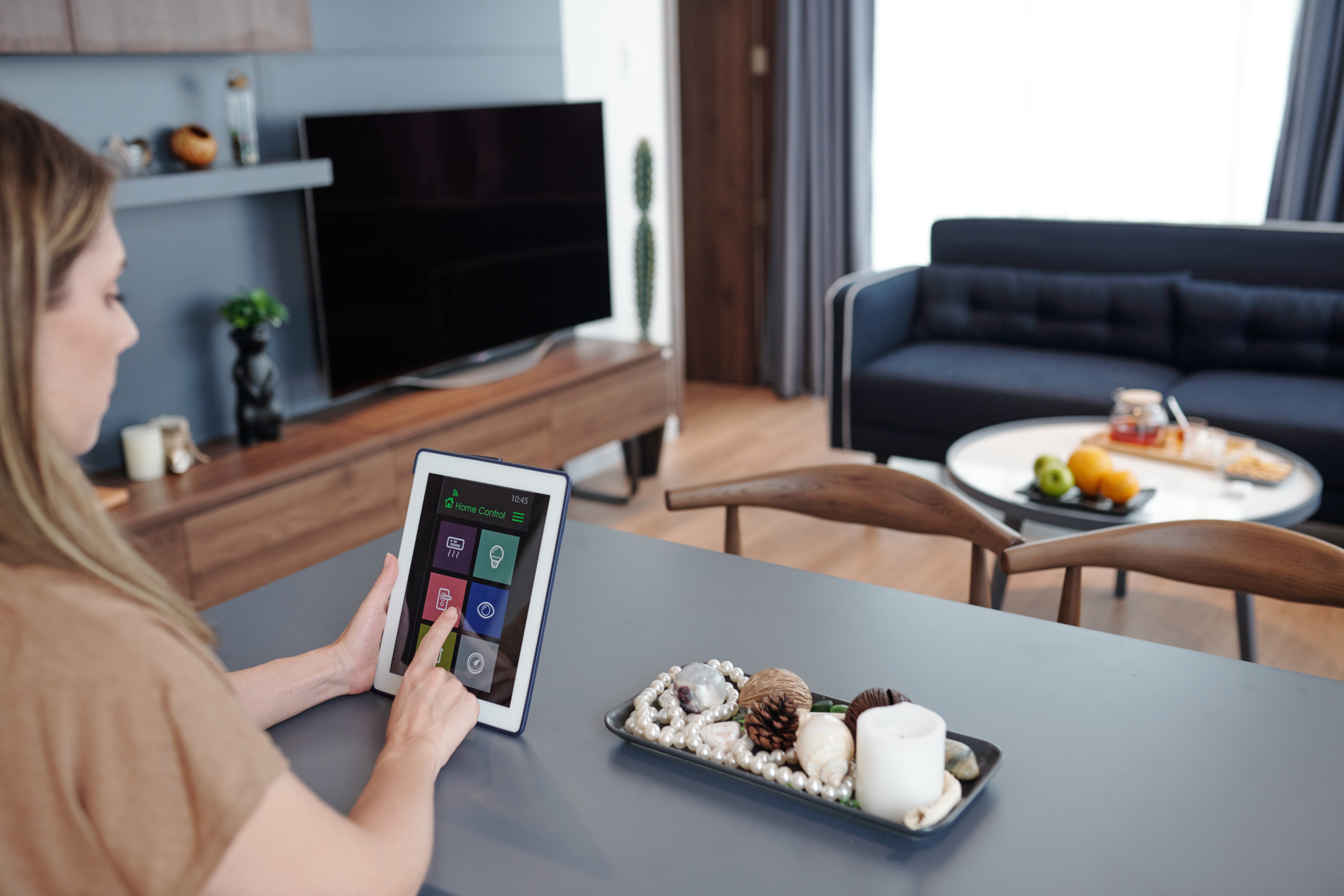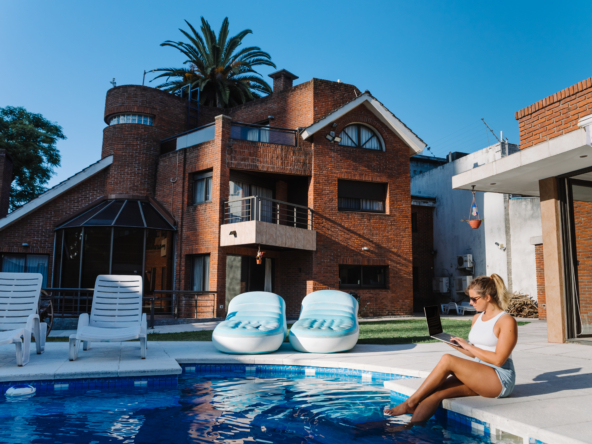In 2025, smart homes are no longer a glimpse into a distant future — they have become the gold standard of luxury real estate. As affluent buyers seek residences that not only impress but also anticipate their needs, smart home technology has emerged as a critical differentiator in the high-end property market.
From AI-powered security systems to intelligent climate control and energy-efficient designs, smart homes are redefining what it means to live luxuriously. Let’s explore why smart homes are the future of luxury real estate in 2025 and what makes them essential for developers, buyers, and investors alike.
The Rise of Smart Homes in Luxury Real Estate
The luxury real estate market has always been quick to adopt innovations that enhance lifestyle, comfort, and security. In 2025, smart homes are taking center stage, driven by several key factors:
-
Technological advancements: Rapid improvements in IoT (Internet of Things), artificial intelligence, and machine learning are making smart systems more intuitive, efficient, and accessible.
-
Changing buyer expectations: Today’s luxury buyers — particularly Millennials and Gen Z — prioritize technology, sustainability, and convenience.
-
Increased remote living: With the global shift towards remote work and hybrid lifestyles, homes are now multifunctional spaces requiring smarter integrations.
For luxury properties to remain competitive and relevant, integrating smart technologies is no longer optional — it is essential.

Defining Features of Modern Smart Homes
A smart home is defined by its interconnected systems that can be remotely monitored, controlled, and automated. The defining features that luxury buyers expect in 2025 include:
1. Advanced Security and Surveillance
High-end clients demand the utmost security. Smart homes now offer biometric locks, AI-enabled surveillance cameras, facial recognition at entry points, and real-time alerts to homeowners’ devices. These technologies ensure not only physical security but also peace of mind.
2. Energy Efficiency and Sustainability
Sustainability has become synonymous with luxury. Smart thermostats, intelligent lighting, and energy-efficient appliances help optimize resource use, reducing environmental impact and operating costs. Solar panels, battery storage solutions, and water management systems are often seamlessly integrated.
3. AI-driven Personalization
Modern smart homes adapt to residents’ habits, preferences, and routines. AI-driven systems adjust lighting, temperature, and entertainment settings automatically, creating a personalized living environment that enhances comfort and convenience.
4. Voice and App-Controlled Automation
Homeowners expect to control lighting, climate, security, and entertainment systems via smartphone apps or voice commands. Integration with virtual assistants like Amazon Alexa, Google Assistant, and Apple Siri is standard in luxury smart homes.
5. Wellness Technology
Luxury living now encompasses health and wellness. Smart air purifiers, circadian lighting systems, sleep trackers, and home fitness integrations are increasingly common features in high-end properties.
How Smart Homes Add Value to Luxury Properties
Beyond lifestyle enhancements, smart homes offer tangible benefits that increase property value and investment potential:
-
Higher resale value: Properties with integrated smart technologies command premium prices and attract tech-savvy buyers.
-
Market differentiation: In a competitive luxury market, smart features can be the decisive factor for buyers.
-
Operational savings: Energy-efficient smart homes reduce utility costs, offering ongoing financial benefits.
-
Future-proofing: As technology evolves, having a smart infrastructure ensures easier upgrades and long-term relevance.
Investors and developers who prioritize smart technology are not just responding to trends — they are strategically positioning their properties for enduring success.
Trends Driving Smart Homes in 2025
Several emerging trends are shaping the smart home landscape in 2025:
Smart Neighborhoods
Luxury developments are increasingly designed as smart communities where infrastructure like security, utilities, and public services are interconnected. Homeowners enjoy cohesive, streamlined living experiences beyond their individual properties.
Integration with Electric Vehicles (EVs)
As EV adoption surges, smart homes now include features like EV charging stations, solar-powered garages, and vehicle-to-home (V2H) energy integration, offering unmatched convenience and sustainability.
Blockchain and Smart Contracts
Blockchain technology is simplifying real estate transactions, enabling secure and transparent smart contracts for purchasing and managing properties. This innovation complements the tech-forward appeal of smart homes.
Predictive Maintenance
AI-driven predictive maintenance tools identify potential issues in HVAC systems, plumbing, and other infrastructure before they become problems, saving homeowners time, money, and hassle.
Challenges and Considerations
While smart homes offer myriad advantages, there are important considerations for buyers and developers:
-
Cybersecurity risks: As homes become more connected, they also become more vulnerable to cyber threats. Investing in robust cybersecurity measures is non-negotiable.
-
Integration complexity: Seamlessly integrating multiple smart systems requires careful planning and often professional consultation.
-
Maintenance and updates: Smart technologies require ongoing software updates and occasional hardware upgrades to stay current and secure.
For luxury real estate professionals, partnering with experienced smart home consultants and technology providers is critical to delivering top-tier experiences.
The Future Outlook: Smart Homes as a Standard
By 2025, the idea of a luxury home without smart capabilities will seem outdated. Buyers will expect not just standalone smart features but fully integrated ecosystems that enhance their quality of life.
Luxury developers who embrace this shift early are reaping the benefits — faster sales, higher valuations, and stronger brand reputations. Meanwhile, buyers investing in smart homes are not only purchasing unparalleled lifestyle enhancements but also securing future-ready assets.
Conclusion
Smart homes are undeniably the future of luxury real estate in 2025. Their seamless blend of technology, convenience, sustainability, and security resonates with modern affluent buyers’ expectations.
As innovation continues to accelerate, smart homes will only become more sophisticated and essential. Real estate professionals who recognize this trend and adapt accordingly will lead the next generation of luxury living, ensuring their success in an increasingly tech-driven market.
If you’re ready to explore the finest smart homes available today, connect with our expert team and discover properties that redefine the meaning of luxury.



